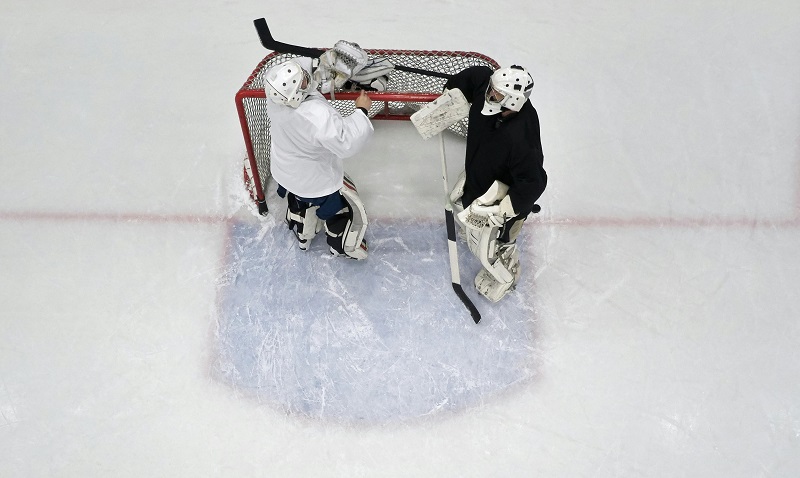
Some may argue sports have trivial cultural significance. While it can’t be denied, it’s not taken particularly seriously. But when we talk about Canada and hockey, things are different. The fact that hockey impacts Canada’s cultural values, attitudes and behavior disagrees with those statements. Hockey is such a big part of Canadian culture, that boys and young males are almost exclusively exposed to hockey in some way. Their future, in some cases, will directly correspond to the Canadian future – meaning that the culture of hockey will greatly influence their values, attitudes and behavior. From Small towns’ icy ponds to NHL’s grand arenas, hockey strikes a chord in the deepest parts of Canadian souls as it epitomizes the struggles and victories of the country.
Hockey is Canada
We may never find real evidence on the origins of hockey, but the nature of Canada and children somewhat implies that the game developed as a natural answer to Canada’s freezing temperatures. In other words, hockey is innately tied to the climate and the land, the very aspect of Canadian identity. The spirit of endurance and the toughness that is a necessary attribute to survive in such a cold environment, as well as traverse through thick ice, has been internalized into the Canadian people, and this spirit is embodied in the sport of hockey.
Equally important in understanding hockey in Canadian culture is the idea of the community. In most cities and small towns, the people’s interest is local ice hockey which becomes the source of local feelings and social connections. Here the local rink becomes the center of the community where the young and old, skilled and novice come together for play, spectatorship, and celebration more or less all around the game. Such cohesiveness, however, isn’t limited to a locality. On the international stage, all Canadians come together to support Team Canada. In such instances, hockey becomes a unifying factor, cutting across ethnic lines and uniting people from a given state when it’s a hockey fan.
Socio-Economic Values of Hockey
In Canada, the appropriation of Hockey history is not just cultural and social but it impacts the political and economic aspects too. The game is big business in Canada, generating several billions of dollars in revenue through the various Pro Leagues, various programs and associated commercial practices. The National Hockey League is one of the most significant economic activities. The game itself is a source of cross-industry inspiration, best explained by hockey video games that extend to themed slot games offered by many online casinos around the world. Such games feature elements that are familiar to the game of hockey and represent a great example of how hockey can find its way to many unexpected places.
On the political side, hockey has also been used as a political means within relations and diplomacy. The 1972 Summit Series shows best how ice hockey can be integrated into politics as a means of communication. More recently, hockey has been employed in various forms of cultural diplomacy, where Canadian teams and players participate onsite in ‘hockey’ exhibitions and tournaments around the world to promote Canada.
What it Means to be a Canadian
Hockey represents many of the values that Canadians cherish, and what Canadians are known for around the world. Modesty, teamwork, and inclusivity. Similar to other team sports, individual performance alone won’t cut it. Rather, there is the need for teamwork and team effort in order to reach the goal. These are the values that Canadians widely associate themselves with. Hockey has equally assisted in the process of normalizing and incorporating diverse cultures within Canadian society. However, the sport has always been dominated and largely played by white men, but there has been a qualitative leap in the appreciation of the contributions of Indigenous players, women and minorities. The story of Willie O’Ree who in 1958 became the first black player in the National Hockey League is a typical exemplification of the ideology in hockey enculturation. O’Ree has basically become a person whose actions made hockey more accessible. This inclusion was also led by the Canadian women’s national team in several international contests strang, the Olympics, where they won gold. The lady’s success in Canada went on to convey an entirely different message as regards women’s sports. Such changes reveal that hockey is indeed the great equalizer.